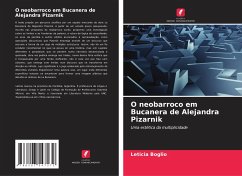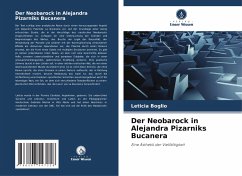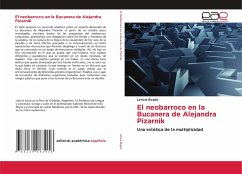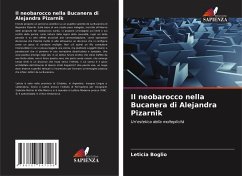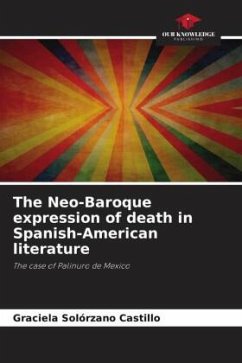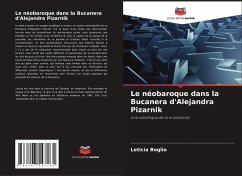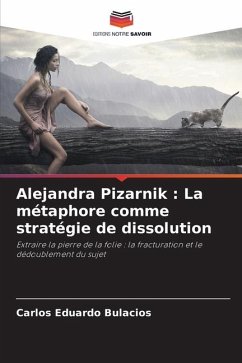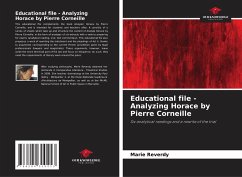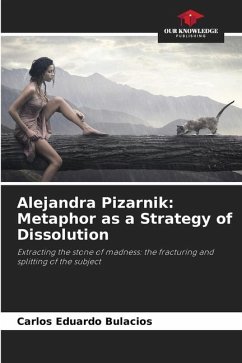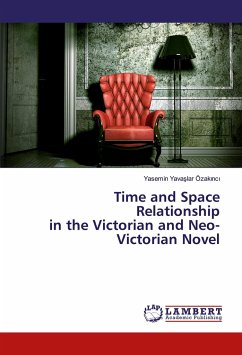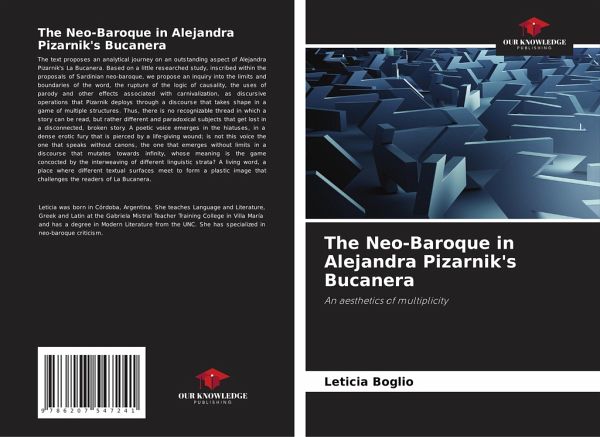
The Neo-Baroque in Alejandra Pizarnik's Bucanera
An aesthetics of multiplicity
Versandkostenfrei!
Versandfertig in 6-10 Tagen
53,99 €
inkl. MwSt.

PAYBACK Punkte
27 °P sammeln!
The text proposes an analytical journey on an outstanding aspect of Alejandra Pizarnik's La Bucanera. Based on a little researched study, inscribed within the proposals of Sardinian neo-baroque, we propose an inquiry into the limits and boundaries of the word, the rupture of the logic of causality, the uses of parody and other effects associated with carnivalization, as discursive operations that Pizarnik deploys through a discourse that takes shape in a game of multiple structures. Thus, there is no recognizable thread in which a story can be read, but rather different and paradoxical subject...
The text proposes an analytical journey on an outstanding aspect of Alejandra Pizarnik's La Bucanera. Based on a little researched study, inscribed within the proposals of Sardinian neo-baroque, we propose an inquiry into the limits and boundaries of the word, the rupture of the logic of causality, the uses of parody and other effects associated with carnivalization, as discursive operations that Pizarnik deploys through a discourse that takes shape in a game of multiple structures. Thus, there is no recognizable thread in which a story can be read, but rather different and paradoxical subjects that get lost in a disconnected, broken story. A poetic voice emerges in the hiatuses, in a dense erotic fury that is pierced by a life-giving wound; is not this voice the one that speaks without canons, the one that emerges without limits in a discourse that mutates towards infinity, whose meaning is the game concocted by the interweaving of different linguistic strata? A living word, a place where different textual surfaces meet to form a plastic image that challenges the readers of La Bucanera.



